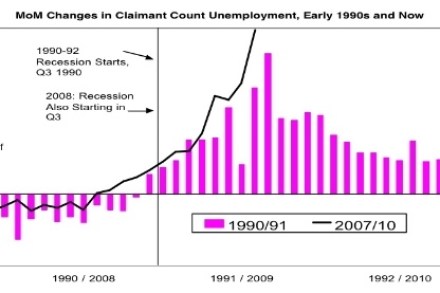Just in case you missed them… | 23 March 2009
…here are some of the posts made over the weekend on Spectator.co.uk: Fraser Nelson says that a 45p tax rate is not what’s best for this country, and reveals that that Tories’ current plans would leave national debt 60% higher than it is today. James Forsyth sets out what George Osborne is playing it right on 45p tax, and makes the case for prison reform. Peter Hoskin says that Cameron should avoid dancing to Brown’s tune, and warns about the state of the public finances. Martin Bright asks whether the left is waking from its slumber. Clive Davis looks into what happened in Gaza. Alex Massie reflects on the life











